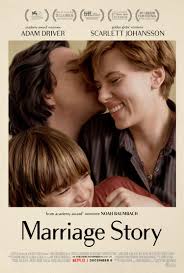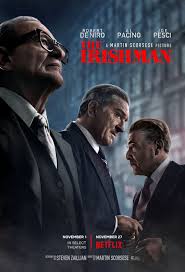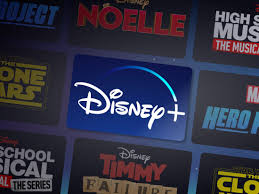The battle to obtain distribution rights is the most competitive it has ever been with the introduction of streaming services. It will only continue to get bigger.

Introduction
Since the establishment of the renowned “Best Picture” Oscar award in 1929, film studios have campaigned for their movie to compete for the award by spending millions of dollars each year to promote its candidacy. An Oscar nomination or win does not always correlate with further box office success, but studios continue to promote their films even with the risk involved. An Oscar “bump” has been known as the winner or nominee within the “Best Picture” category gaining more viewership through box office success following the Oscars award show. There hasn’t been more than a $7 million “bump” at the box office since the silent film “The Artist” won the award in 2012. Recent articles have stated that the economy and film industry are changing due to streaming service giants obtaining rights to critically acclaimed films. Now, the Oscar “bump” has to include viewing on streaming services to go along with box office success. So why do studios continue to spend millions if the Oscar “bump” does not directly relate to box office success? Because now these critically acclaimed films are being viewed on streaming services rather than in the theatre. Studios such as Netflix, Amazon, A24, Fox, Columbia Pictures(owned by Sony) know that to get the most viewers possible(and more importantly the most prestige and money), they have to continue to obtain rights to critically acclaimed films. Most recently, Netflix saw an increase in media attention due to having rights to four out of the five films nominated in the “Best Picture Drama” category for the Golden Globe awards. Netflix is now considered a quality film distribution company, and the Golden Globe nominations will surely get Netflix more critically acclaimed films and exclusive partnership deals. Netflix has already signed a contract with director Martin Scorsese to have his work distributed exclusively on the platform. In a crowded streaming service platform race, Netflix is hoping to prevail through not only owning the most content, but more importantly the most quality content. Gaining access to high quality films for a streaming giant could help them prevail in the streaming service war. Netflix’s recent awards season success has put even more pressure on other studios in the competition, especially independent film studios. Since Netflix is trying to create a monopoly to limit other studios(and other streaming services) from gaining rights and praise for critically acclaimed films. Even A24, a popular studio giant, is partnering with Netflix to share rights to critically acclaimed film,“Uncut Gems”. Netflix is credited as the international distributor, and A24 is credited as the United States distributor. Sharing rights to critically acclaimed films may also be a trend we continue to see as having any distribution will boost revenue and prestige. The economic incentive is simple: The more nominations and awards won by a studio, the more critically acclaimed movies the studio will obtain which inevitably makes them more money. The hard part is actually implementing a strategy to make that happen with longevity. The crowded streaming service war will turn into the streaming services battling for critically acclaimed films, which inevitably will lend them partnerships and more exclusive content. It will also push big studios like Columbia Pictures(Sony) and Fox(Disney) to be limited in gaining rights, or have produce their own content and/or partner with other studios to get a share of the profit and prestige.
Independent Studios have been pushed out and even household names are losing rights to streaming giants such as Netflix and Amazon.


Streaming giants Netflix and Amazon have tried to make the jump in attaining high quality films to compete with big theatrical-partnered film studios. Netflix took a big loss at the awards last year, when they spent $15 million promoting “Roma”, but the film got upset by “Greenbook” in the “Best Picture” category. This season, Netflix stocked up by obtaining and heavily promoting four Oscar candidate worthy films and they all seem to be getting tons of praise. Netfllix and Amazon are still competing against Columbia, Fox, and A24, unless they have a partnership with those studios to distribute the picture. I mentioned before that the competition is so cutthroat and competitive that A24 had to partner with Netflix to gain rights to Oscar contender “Uncut Gems”. Obviously, studios would want to promote and distribute a critically acclaimed film alone, but if only twenty films in a given year (usually) have a chance at an Oscar nomination, then it is inevitable that studios will partner with each other (including streaming services) to gain credibility if that film is in fact nominated. Together, these studios can spend an absurd amount of money promoting “Uncut Gems”. Columbia, Warner Bros, and Fox Searchlight are household names in the industry with a track record of multiple net picture wins each, so they have enormous amounts of money to spend each year on attaining rights and promoting critically acclaimed films. With the competition heating up between Warner Bros, A24, Columbia, Fox, and Netflix and Amazon, there is little room for independent studios to make a name and join this list in the competition. Especially with Netflix having four of five “Best Picture Drama” nods at the Golden Globes, and probably three to four of the seven to ten Oscar nominations for “Best Picture” when they are revealed, it is leaving little room for even the big studios like Fox, Columbia, Paramount…etc. However, it is not impossible for an independent studio to enter the competition as A24, a once small, independent company, now film studio giant, hit the lottery after their film Moonlight won “Best Picture” in 2017. Moonlight catapulted A24 into a powerful distribution studio and since 2017, not only has A24 received the rights to huge box office successes such as “Hereditary” and “The Lighthouse”, but also critically acclaimed films that are supposed to be up for multiple Oscar nominations such as “Waves”, “Uncut Gems”, and”The Farewell. Moonlight did not have a huge “Oscar Bump” with box office success or streaming services until late 2018 when it appeared on Netflix. Although Moonlight did not garner an extreme amount of box office success or streaming service recognition immediately after its “Best Picture” win, it catapulted the smaller/independent studio in A24 to a household name that will continue to gain rights to critically acclaimed films in the competitive field for years to come. However, in 2017, Netflix had 0 nominations for the Oscars and Columbia, Fox Searchlight, and Universal Pictures combined for 0 nominations. Paramount Pictures and Lionsgate were the only two big studios that got Oscar nominations for the “Best Picture” category. The rest of the films were distributed by independent film companies. Even Amazon got its first “Best Picture” nod in “Manchester by the Sea” that year, but more importantly, independent studios had more of a chance in 2017. At the 2019 Oscars, only one independent studio got a best picture nomination as Fox, Universal, Netflix, Columbia, and the other big studios received the other “Best Picture” nominations. Since Netflix is expected to receive 35 percent of “Best Picture” nominations for the upcoming 2020 Oscars, and they have already purchased big name films to distribute for next year, many people are worried that the streaming giant could be creating a monopoly. Gaining more and more critically acclaimed films would boost Netflix’s stock, viewers, revenue and help them with their enormous amount of debt. The better argument now is that big studios have a monopoly in the industry and independent studios’ Oscar nominations are down each year. It will be interesting to see in the coming years if this gaining rights to critically acclaimed Oscar films continues to be dominated by Netflix and other big names as a monopoly, or if more independent companies make a surge and make it more competitive. If Netflix is spending $10’s of millions per year to promote each of their movies, the bigger question is how an independent studio who has nowhere near the money or prestige to buy rights or promote the film, is going to compete with them.


The competition is heating up!
Since independent studios have odds against them with bigger studios continuing to expand and take advantage of the competition, the competition right now is streaming services (Netflix, Amazon) vs. household studio names (Fox, Paramount). This year, according to GoldDerby.com(the most valued prediction website for award and talent shows), household studios Universal, Paramount, and Columbia are predicted to receive zero Oscar nominations for the “Best Picture” category, while Netflix is expected to receive four. Amazon bought a numerous amount of critically acclaimed material, hopeful to make a splash in this years nominations, since they haven’t had a Best Picture nominee since 2016. Unfortunately for Amazon, the two films they promoted the most from their batch of critically acclaimed material in 2019: “Honey Boy” and “The Report”, have been ruled out of Oscar territory according to many experts including GoldDerby.com. Even though Netflix is in tons of debt, it’s promotions of critically acclaimed films for this upcoming Oscar season has payed them dividends as they will have the most Oscar nominations of any other studio. Hulu did not even try to compete in this years award season because they are owned by Disney, which is working on multiple original films(to go along with the box office giant Marvel films) to put on Hulu and Disney Plus in the next couple of years to compete in the already stacked field. It also helps that Disney owns Fox, and of Colombia, Fox, Paramount, and Universal, Fox is the only one expected to receive an Oscar nomination this year in the “Best Picture” category. Furthermore, Amazon being shut out and Hulu and Disney Plus waiting on their original films, Netflix(even with their debt) has won the streaming service race for this year. However, all of the streaming services know that a strategy to win the streaming service war in the long run is to monopolize quality content to the best of their ability or just buy everything(like Disney is trying to do). Disney has bought Fox and Marvel Fox Searchlight promoting high quality films and Marvel promoting box office successes), CBS owns Paramount Pictures and is going to introduce a new streaming service soon, and Sony owns Columbia Pictures and is trying to buy A24(which is still independently owned and private). Even though Netflix has won this award season so far, other streaming services(Disney Plus and Amazon) will continue to partner with other companies and studios(or again in Disney’s case just buy them) to gain as much quality content as possible in the near future. It does not help Netflix that they do not have a parent company supporting them, considering Fox Searchlight, Hulu, Columbia, Warner Bros, and Paramount, all have parent companies supporting them. Amazon is so rich off of their e-commerce and shipping business that they can support their own streaming service and do not need a parent company to continue to spend money on obtaining and promoting films. Even though Netflix won not only the streaming service battle, but the studio distribution battle as well this year, it remains to be seen if they can keep it up, considering more streaming services and studios have partnerships and are buying more exclusive content to compete.




Conclusion!
In conclusion, the economic incentive for studios to promote critically acclaimed films is to obtain rights to even more critically acclaimed films that will continue to make them money. Whether they distribute the films themselves(Columbia and Fox), or share the films(A24 with Netflix), getting as much high quality content as possible within a year is always the goal for studios. Considering only roughly twenty films have a shot at receiving a “Best Picture” nomination, studios scramble throughout the year to get distribution rights to those films. With the economy and film industry shifting to streaming services, competitors such as Netflix and Amazon have entered the already loaded race. Netflix has gained so much Oscar praise and nominations in so little time that other studios are fearing they will have trouble competing with Netflix. Independent studios have virtually no leverage anymore in obtaining critically acclaimed films since they do not have the money that Netflix has to by and promote high quality material. As Disney Plus, HBO Max(owned by Warnermedia), and possibly even Apple Plus enter the race to obtain critically acclaimed films, the pie will only get smaller. Obtaining distribution rights to critically acclaimed films may be the way to win the streaming service war. Even though Netflix has made a comeback (after spending $10 million promoting “Roma” for it not to win) with highly praised Oscar material this year, the competition will only get harder for them with Disney owning Fox and Disney Plus, which will spend enormous amounts of money in the next couple of years to obtain rights to critically acclaimed films. Not to mention that Sony, Universal, and Warner Bros will continue to partner with different streaming services and companies to gain critically acclaimed material in the years to come as well. Since the economy and film industry will continue to adapt to the streaming services and content war, it will be interesting to see if independent films can get back into the competition(A24). It will also be interesting to see if big studios can make a push to obtain rights to critically acclaimed films over the new competitor streaming services, or if the streaming services will take over completely and create a monopolizing business. Netflix has won the streaming service and content war in the short term(2019/early 2020), but it remains to be seen who will win in the long term and the effects it may have on the film industry and the economy.

Sources:
- GoldDerby.com
- CNBC.com – https://www.cnbc.com/2019/12/09/netflix-dominates-golden-globes-nominations-with-17-nods.html
- Indiewire- https://www.indiewire.com/2019/06/movie-exhibition-distribution-future-1202152832/
- The Verge- https://www.theverge.com/streaming-wars
- CNBC.com – https://www.cnbc.com/2019/11/16/disney-plus-streaming-wars-just-warming-up.html
- Time- https://time.com/5736490/streaming-wars-disney-plus-apple-tv/
- New York Times – https://www.nytimes.com/2019/01/17/business/media/paramount-pictures.html
- The Atlantic- https://www.theatlantic.com/entertainment/archive/2019/03/disney-fox-merger-and-future-hollywood/585481/
- The Observer- https://observer.com/2019/11/disney-fox-apple-netflix-media-merger-acquisition-predictions/